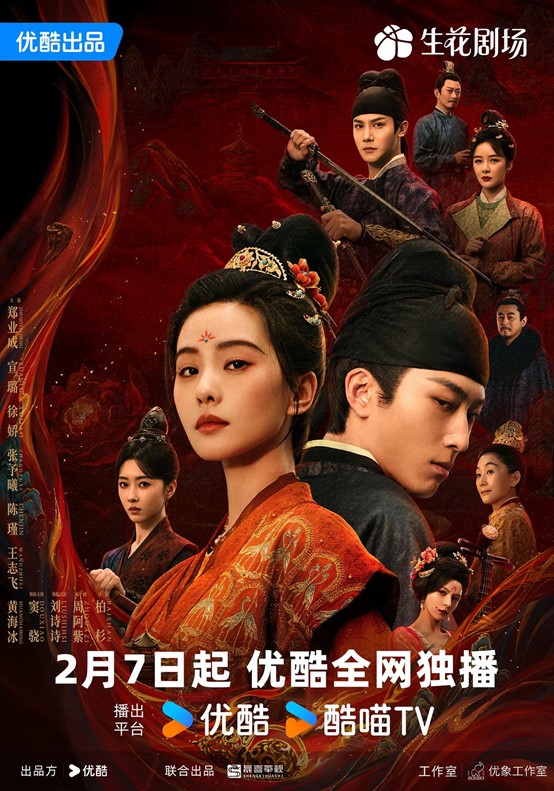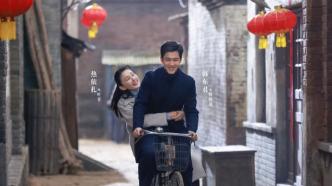
In recent years, "Love in the Courtyard" and "Little Woman under the Zhengyang Gate" directed by Liu Jiacheng and written by Wang Zhili have gained quite good ratings and evaluations after they were broadcast, and once again pushed "Beijing-style TV dramas" to the top of the industry's literature and art reviews. In the field. Recently, the two's new work "Love Full of Nine Bends" was broadcast, telling the story of the era of Beijing educated youth Yang Shumao's study, work and emotional entanglements after returning to the city. Although the drama is far less popular than the previous two works, the cultural characteristics and creative thinking it presents are still worth discussing and thinking about.
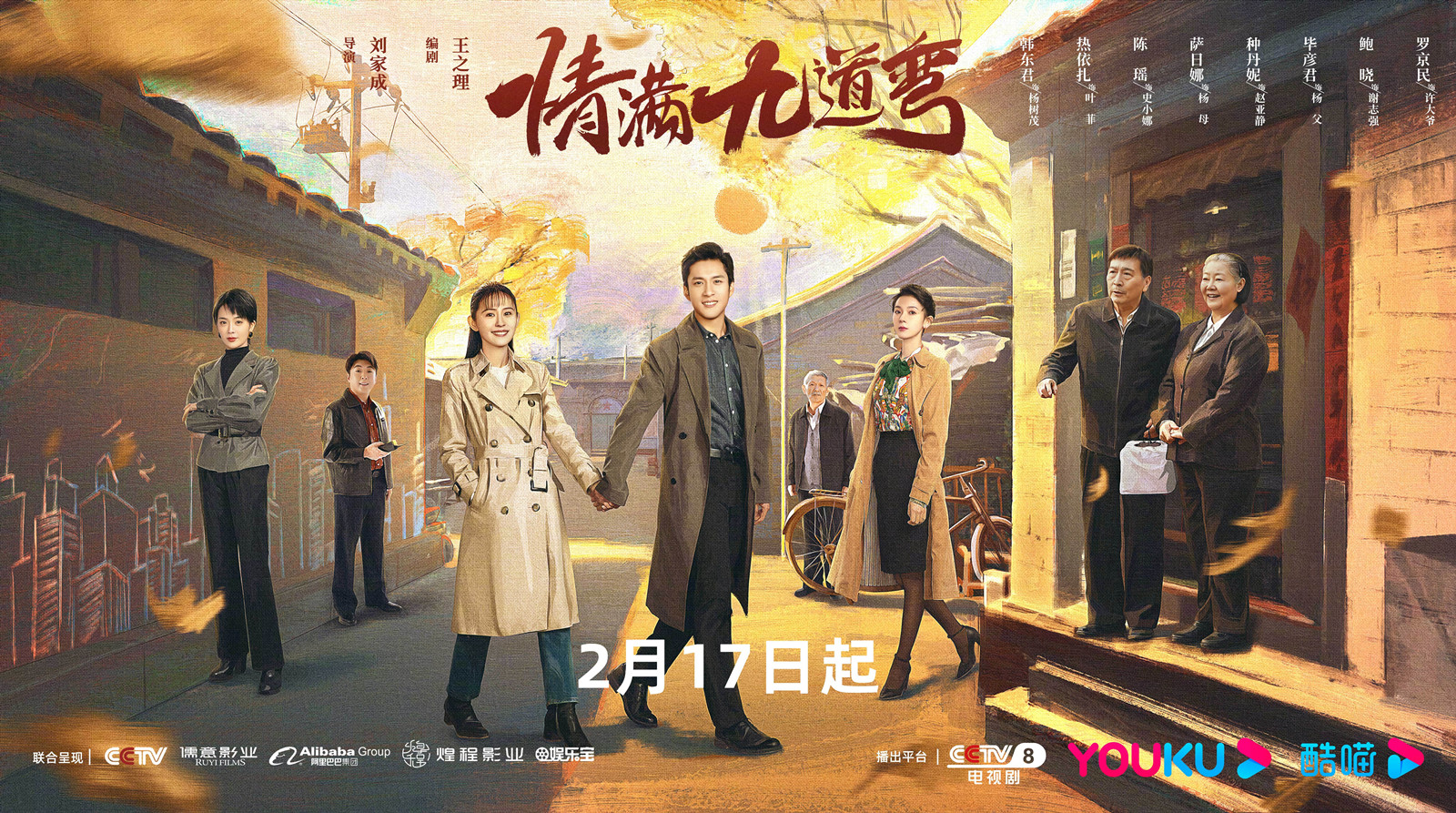
"Love in Nine Bends" poster
"Beijing-style children's drama" is not a well-defined concept in the academic circles, but a synonym for a term that has not yet been unified in literary criticism. In the article "Cultural Characteristics and Modern Inheritance of Beijing-style TV Dramas" by Zhao Hui, director of the Beijing Critics Association and professor of the School of Drama, Film and Television, Communication University of China, he pointed out that "Beijing-style children's dramas" are "rooted in the unique regional cultural soil of Beijing. The dialect is the basis of discourse, and the TV dramas reflect Beijing's customs, life interest and spiritual state, and it will inherit the spiritual connotation and cultural characteristics of the "Beijing school" in an artistic way." The author personally agrees with the characteristics of the so-called "Beijing-style children's drama" rooted in Beijing's regional culture. It can be said that TV dramas with the label of "Beijing-style children's drama" have an unavoidable theme regardless of their themes and stories: history of the city's development.
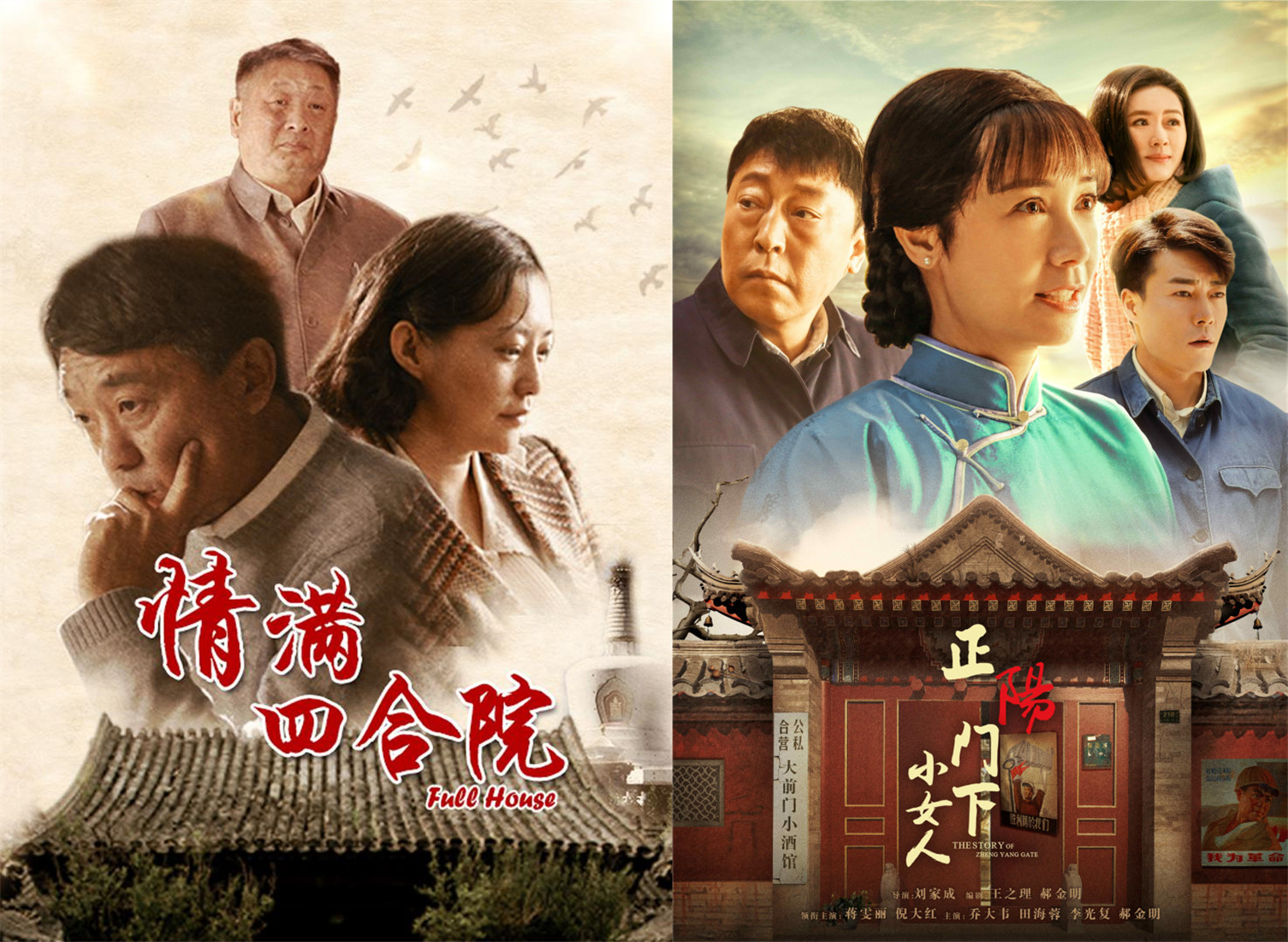
Posters of "Love in the Courtyard" and "The Little Woman Under the Zhengyang Gate"
"Love in the Courtyard" takes the emotional journey of "Silly Zhu" and Qin Huairu as the main line, and at the same time, it also presents a panoramic display of the complex and special interpersonal forms in which neighbors in Beijing's courtyard house mixed together like a family in the 1960s. "Little Women at Zhengyangmen" takes Xu Huizhen's growth history as a businesswoman as the main line, but at the same time, it also takes a Beijing tavern as the scene to unfold Beijing's "public-private partnership", "Great Leap Forward" and "three years of natural disasters" since the 1950s. "Personnel changes and human relationships in different historical periods such as the "Cultural Revolution". "Love in Nine Bends" takes Yang Shumao's emotions and the ups and downs of his business experience as the main line, and at the same time tells about the changes in Beijing's urbanization since the 1980s.
The three works mentioned above all overlap in time, but their narrative focus and theme expression are different. The age gap of the protagonists in the three works also makes them carry different characteristics and spirits of the times. Compared with the silly Zhu in "Love in a Courtyard" who emphasizes love and righteousness and knows his fate, Xu Huizhen in "The Little Woman Under the Zhengyang Gate" is tough, smart, and Yang Shumao in "Love in Nine Bends" and a group of characters around him are obviously different. "Pleasant" a lot.
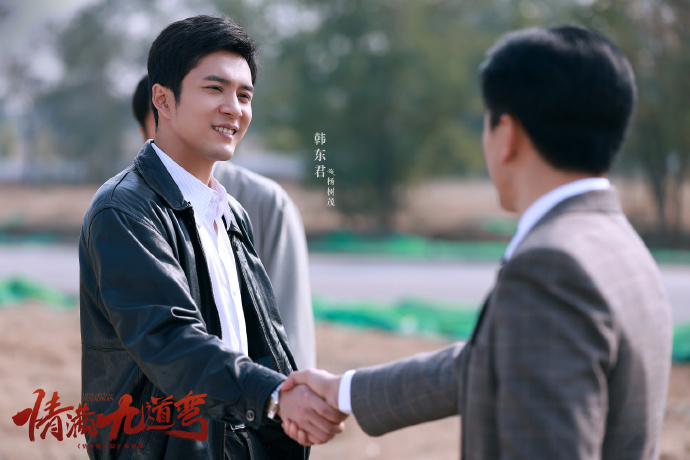
Han Dongjun as Yang Shumao
Yang Shumao is "foolish and filial", impulsive, revengeful, machismo, the second female Shi Xiaona, and the third female Zhao Yajing both have a side that ignores righteousness at critical moments. Although the heroine Ye Fei is an intellectual, she gave up her career for love , uncompromising, and a proper image of a "perfect wife" in the imagination of some men, but it is a "love brain" and "beautiful wife" in the context of young people on the Internet today. The three women revolved around Yang Shumao, and Yang Shumao's career counterattacked all the way, which made the show easy to be simply understood as a "male cool drama".
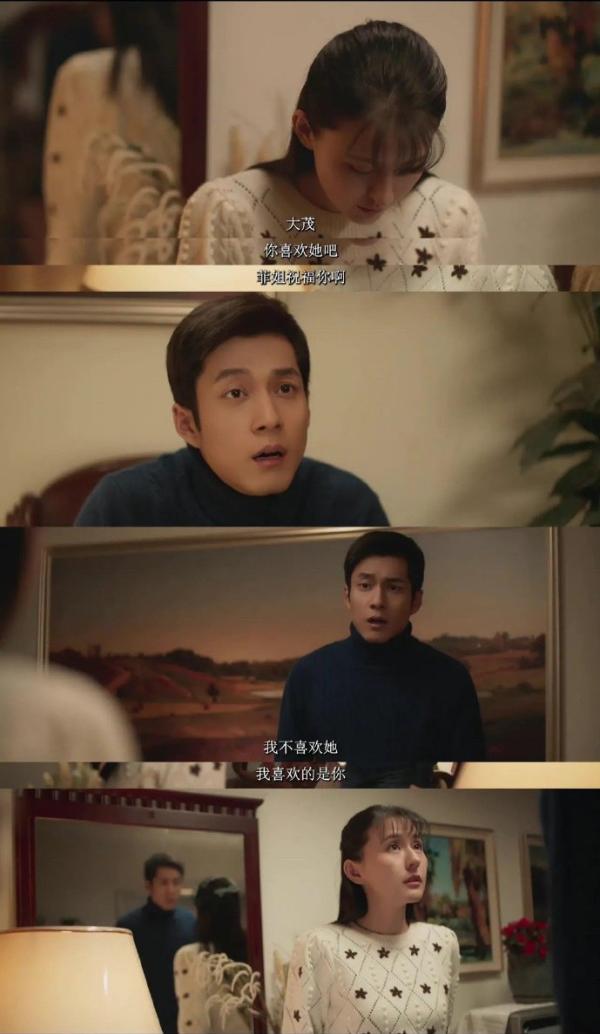
Stills of "Love in Nine Bends"
It is undeniable that in the plot design of "Love in Nine Bends", there are many "coincidences", inconsistencies in logic, and strong conflicts for the sake of strong conflicts. It lost the possibility of further elevating its spiritual conception, but it is still a "fun drama" that the common people love to watch and watch over dinner. And "Shuang" belongs to "Shuang". In terms of character and character relationship design, the author believes that Wang Zhili still has the sophistication and boldness of Wang Zhili as a senior screenwriter.
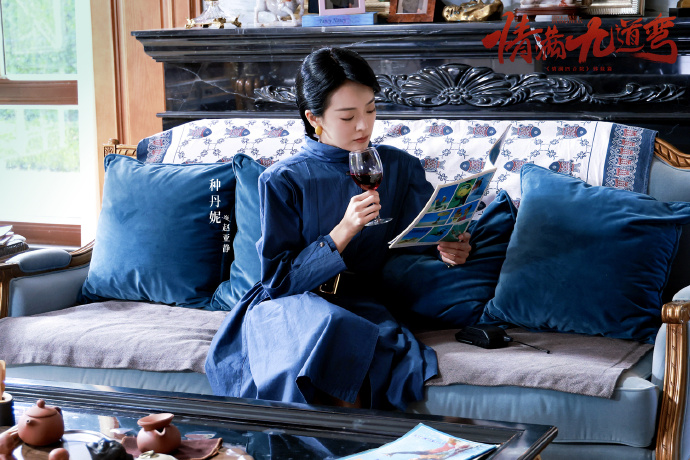
Danni Chong as Zhao Yajing
The three female characters around Yang Shumao were born in a capitalist family, a businessman's family, and an intellectual family. In traditional values, Yang Shumao, who was born in a worker's family, is most suitable for Zhao Yajing, who has similar class attributes. They are neighbors and business partners. According to the logic of the drama, this is the most suitable relationship between a group of characters. , Zhao Yajing is also the daughter-in-law that Yang Shumao's mother looks for. The problem with Zhao Yajing is that "businessmen value profits". Although she has a crush on Yang Shumao, she has more emotional considerations based on Yang Shumao's "making money and reliable character". The underlying logic is very utilitarian, which Yang Shumao knows very well But it is not acceptable.
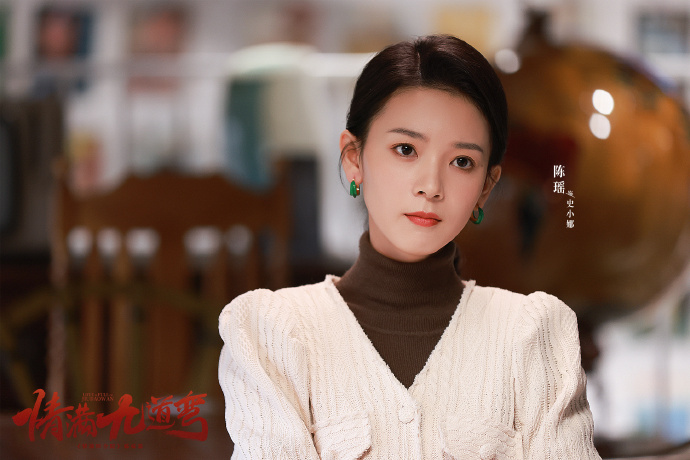
Chen Yao as Shi Xiaona
Shi Xiaona, who was born in a capitalist family, has the biggest class gap with Yang Shumao. In special times, she and Yang Shumao's family were directly "class enemies". In the early years, her parents were criticized and defeated by Yang Shumao's parents. But also because of the particularity of the age (educated youths going to the countryside), the differences between the two young people from very different backgrounds were temporarily smoothed out, and they came together for a while. But times have changed, and under the impact of the economic tide, the class gap between the two has reappeared, which is the root cause of their final divergence.
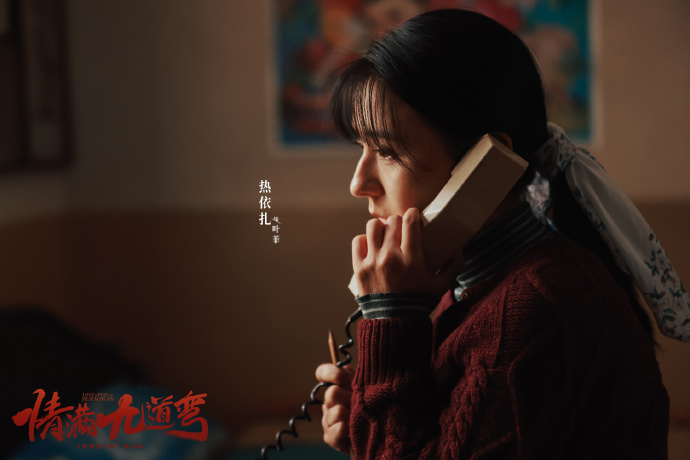
Reyza as Ye Fei
The heroine Ye Fei was born in an intellectual family. Like Shi Xiaona, her parents also have a similar history with Yang Shumao's parents. However, unlike Shi Xiaona's parents who had grievances and estrangements about that period of history, Ye Fei's intellectual parents clearly understood the special circumstances of the times. Therefore, their views on Yang Shumao's parents are objective and rational, and they always respect and give rational advice on the emotional development of the hero and heroine. Because of this influence, Ye Fei is more educated and reasonable, and she is more open-minded and gentle, and can resonate with Yang Shumao on the ideological level. Therefore, although it is a bloody polygamous love, the old screenwriter still tries to create special characters in line with the background of the times in the square inch, and see the big from the small, reflecting class differences and characteristics.
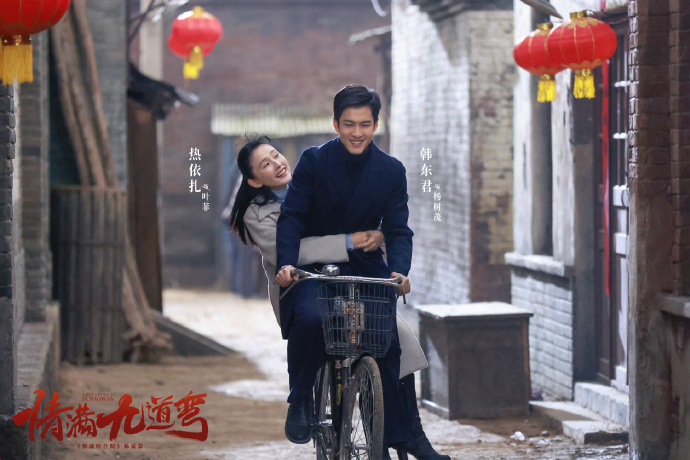
Stills of "Love in Nine Bends"
Yang Shumao's mother, played by Sarina, is a very representative and characteristic mother image in Chinese dramas in recent years. Mother Yang is a high-pressure mother who repeatedly interferes with her children's life and work choices by extreme means. But she is not a "bad mother" who only has an ignorant side in many film and television dramas that describe the bottom of the market.
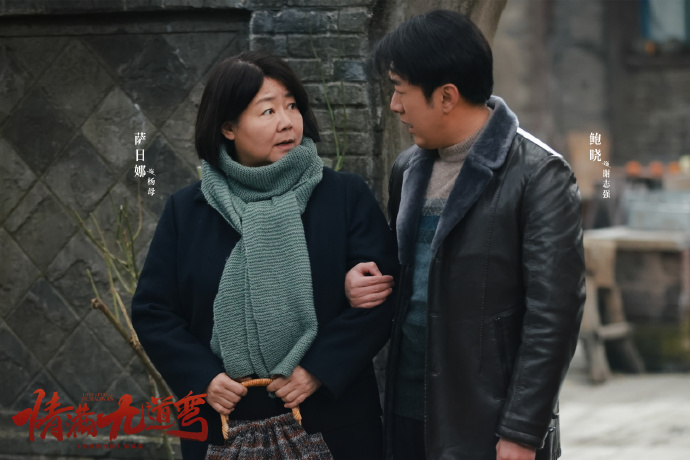
Sarina as Mother Yang
Her complexity is quite prominent: her education level is not high, her thinking is limited, she took the lead in hurting Ye Fei and Shi Xiaona's family members in the catastrophe, but she also dedicated her life to the construction of the country; Traditional concepts such as "raising children for old age" and "marriage is ordered by parents", but she is not inferior to any mother in caring and loving her children; Sometimes, the whole family will come forward to support him.
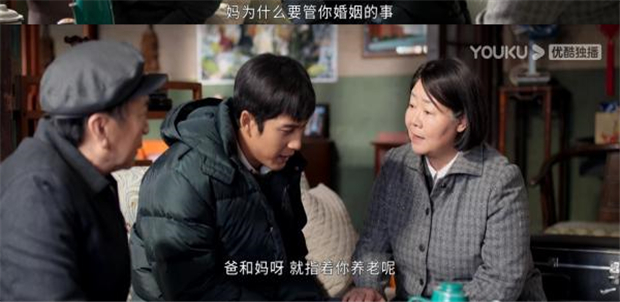
Stills of "Love in Nine Bends"
To be honest, in recent years, the "mothers" in domestic dramas are either the gentle and tough loving mothers in "The World", or the patriarchal "evil mothers" in "Everything Is Good". Mothers, the criteria for judging roles are only based on "whether the mother has fulfilled the motherhood", but they have not tried to explore "the cost and benefits of motherhood" based on the figure of "mother", "whether the mother can Not to mention the sociological observations such as "the reproduction of labor force in the family" and "the economic value of having children in the traditional family view".
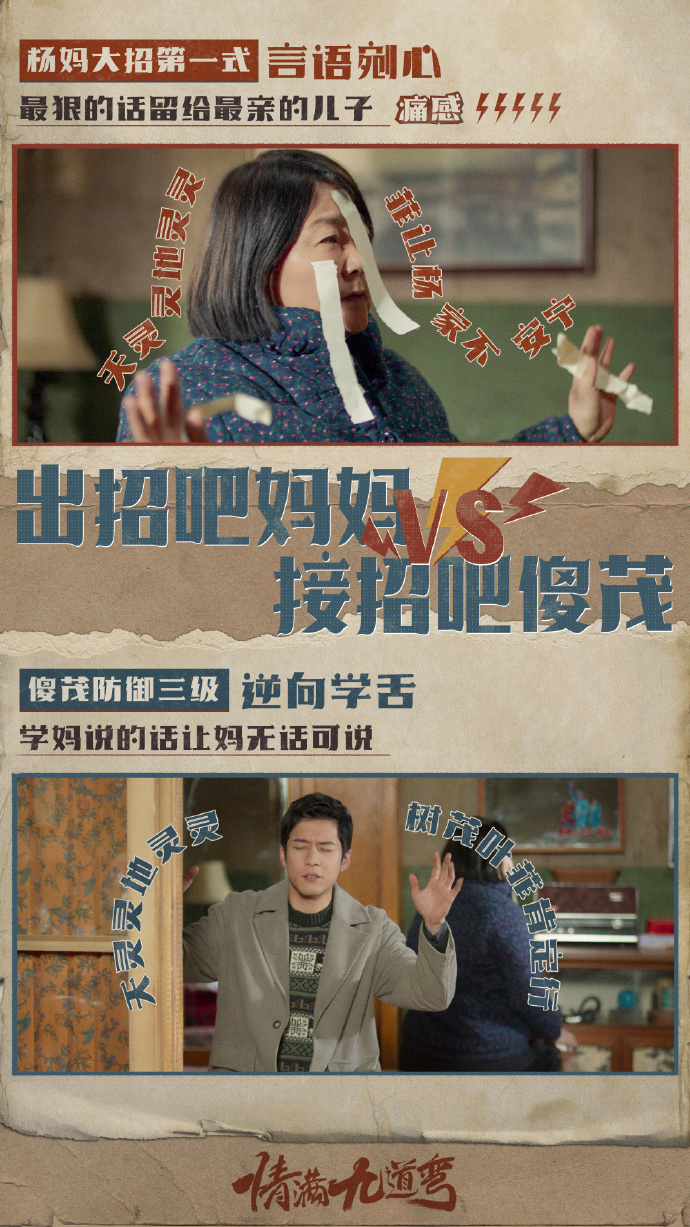
The "meme" released by the official Weibo of "Love in Nine Roads": Yang Ma's "zooming tricks" keep making moves, and Da Mao uses "defense skills" to see the tricks
The complexity and contradictions of the role of Mother Yang in "Love Full of Nine Bends" can make people touch and think about the above-mentioned issues. The battle of wits and courage between Yang Shumao and Yang's mother, and the relationship between the Yang family who "sucks blood" and cares about Yang Shumao, to a certain extent, faithfully expresses the deeper power and friendship of the Chinese-style big family in the early years. Nepotism.
In the field of literary criticism of TV dramas, there is also the term "Shanghai-style drama" compared to "Beijing-style children's drama". There are obvious differences in the external presentation of the two, but at the core, the two types of dramas both build their cultural foundations on the long histories and profound cultural accumulations of the two cities. Without this history and accumulation, there is no talk of change. and the wave, not to mention the contradictions brought about by the change and the wave. "Love is full of nine bends", under the seemingly superficial conflict between intergenerational relationships and emotional entanglements, it actually shows the evolution of class relationships and the power changes between parents and children under the changing times. The impetuousness, utilitarianism, and money-oriented characters of the characters are another aspect of that era that has been missed again and again.
If you don’t want to think about and trace the genes of too many eras in a TV series, just treat it as a dinner drama, this is also at the moment when TV series creation is becoming more and more vertically focused, a TV series that allows three generations of grandparents and grandchildren to sit together on TV "Old fashioned" TV shows that you watch while cursing in front of the TV.

